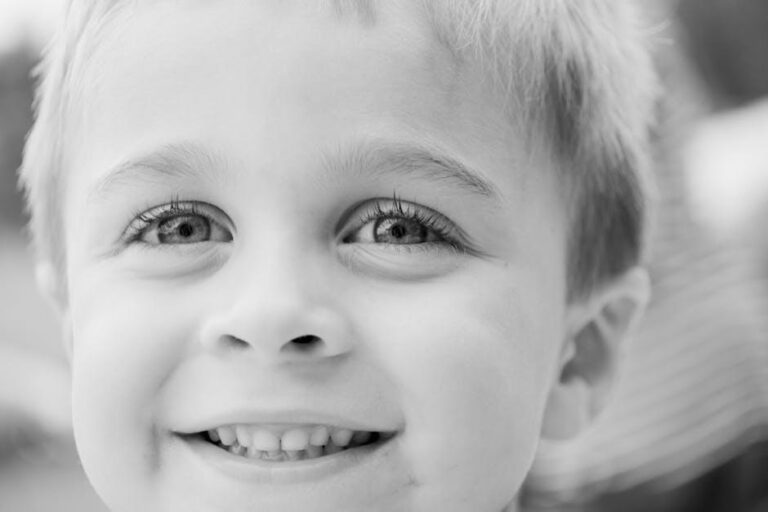Why Your Toddler Is Due a Dental Visit (And Why You’re Probably Brushing Their Teeth Wrong Too) – The Age
Bringing your toddler to their first dental visit is a milestone every parent should prioritise, yet it’s often overlooked or delayed. Coupled with that is a surprising truth — many parents may be unknowingly brushing their little one’s teeth incorrectly, which can impact long-term oral health. In this article, we’ll explore why it’s crucial to schedule a timely dental check-up for your toddler, identify common toothbrushing mistakes, and share practical tips to ensure your child’s smile stays bright and healthy.
Why Your Toddler Needs a Dental Visit Early On
Many parents think dental visits should start only when all baby teeth have emerged or when a toddler is older. However, dental professionals recommend that your child should visit the dentist by their first birthday or within six months after the first tooth erupts. Here’s why:
- Early detection of dental issues: Cavities, tooth decay, or other dental abnormalities can begin very early. An initial dental visit helps detect potential problems before they worsen.
- Establishing a dental home: Creating a consistent relationship with a pediatric dentist fosters familiarity and comfort for your child and eases future appointments.
- Parental guidance and education: Dentists educate parents on proper oral hygiene, nutrition, and habits, empowering you to support healthy teeth development.
- Preventative care: Dental visits include professional cleanings and fluoride treatments, which help prevent tooth decay and other dental diseases.
- Monitoring growth and development: Dentists can monitor your toddler’s oral development and jaw growth, ensuring everything is progressing normally.
Are You Brushing Your Toddler’s Teeth Correctly? Common Mistakes Revealed
Brushing your toddler’s teeth is a daily routine, but surprisingly, many parents make mistakes that can negatively impact their child’s oral health. Here are some common missteps to avoid:
1. Using the Wrong Toothbrush and Toothpaste
Toddlers have delicate gums and small mouths, so they require a soft-bristled, age-appropriate toothbrush. Using an adult toothbrush or one with hard bristles can cause irritation or damage. Additionally, toothpaste should be fluoride-free or have a very low safe fluoride level for young children — and parents often use too much, increasing the risk of fluorosis.
2. Brushing Too Hard or Too Fast
Firm scrubbing may seem thorough, but it can hurt your toddler’s sensitive gums and wear down enamel. Brushing should be gentle and last about two minutes to clean all surfaces effectively.
3. Neglecting the Back Teeth or Gum Line
Parents often focus on front teeth but miss cleaning molars and along the gum lines where plaque tends to accumulate. These hard-to-reach areas are critical to clean to prevent cavities.
4. Not Brushing Twice a Day Consistently
Irregular brushing or just once daily won’t keep plaque at bay. It’s essential to brush your toddler’s teeth twice every day — ideally morning and before bedtime.
5. Allowing Prolonged Exposure to Sugary Drinks
While not directly about brushing, it’s important to avoid letting toddlers sip sugary juices or milk throughout the day, as this feeds harmful bacteria and causes decay.
Practical Tips to Brush Your Toddler’s Teeth Like a Pro
To help you improve your toddler’s oral hygiene routine, consider these expert-approved tips:
- Use a pea-sized amount of toddler-specific fluoride toothpaste. Make sure your child spits it out rather than swallowing.
- Hold the toothbrush at a 45-degree angle to clean along the gum line gently.
- Brush all tooth surfaces: front, back, and chewing surfaces—taking your time to reach molars.
- Make toothbrushing fun: Use songs, timers, or apps designed to encourage toddlers to brush properly for the full two minutes.
- Brush together: Show your toddler the routine by brushing your teeth alongside them.
- Replace toothbrushes regularly: Every 3 months or sooner if bristles are frayed.
Benefits of Early and Proper Toddler Dental Care
| Benefit | What It Means for Your Toddler | Long-Term Impact |
|---|---|---|
| Early Cavity Prevention | Reduces risk of painful cavities and infections | Healthy adult teeth, better chewing and speech |
| Positive Dental Attitude | Less fear and anxiety about dentist visits | Regular check-ups into adulthood |
| Improved Oral Hygiene Skills | Develops good brushing and flossing habits | Lower risk of gum disease and tooth loss |
| Better Nutrition & Feeding | Guidelines reduce sugary snacks impact | Supports overall health and weight management |
Case Study: A Toddler’s First Dental Visit Success Story
Sarah, a new mum, delayed her son Liam’s first dental appointment until he was two. During the visit, the dentist identified early signs of baby bottle tooth decay due to nighttime milk feeding. With professional advice, Sarah adjusted Liam’s feeding routine and started an improved brushing regimen. At follow-up visits, Liam’s teeth remained strong and cavity-free.
Sarah shares, “Taking Liam to the dentist so early opened my eyes to simple changes I could make. The staff made the visit fun, and now brushing is something he actually enjoys!”
Conclusion: Prioritise Your Toddler’s Dental Health Today
Scheduling your toddler’s first dental visit and mastering correct toothbrushing techniques are cornerstones of building a lifetime of healthy smiles. Don’t wait until problems arise—early intervention safeguards your child’s oral health and fosters positive habits that last a lifetime. Armed with the right tools, knowledge, and support from dental professionals, you can confidently care for your toddler’s teeth and set them on the path to a happy, healthy future.


